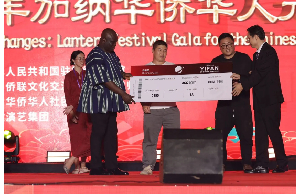Ghanaian youth should desist from seeking greener pastures outside the country because conditions in Ghana are far becoming better, Mohammed Tijani, Deputy Minister of Foreign Affairs and Regional Integration, has said.
According to him, Ghanaian youth are turned into slaves in the countries that they travel to in search of better lives and so they are better off staying at home to explore opportunities.
Recently, President Nana Addo Dankwa Akufo-Addo called on the Qatari authorities to take steps to address the maltreatment of Ghanaians working in that country.
He said the government was worried about the unceasing allegations of abuses meted out to Ghanaians by Qatari employers, adding that situation ought to stop for beneficial relations between both nations.
The President expressed that concern when he received the credentials of the newly appointed Ambassador of Qatar to Ghana, Mohammed Ahmed Jaber Al-Kuwari at the Flagstaff House in Accra.
Speaking in an interview with Chief Jerry Forson, host of Ghana Yensom on Accra100.5FM on Friday July 28, in connection with the maltreatment Ghanaians suffer abroad, Mr Tijani explained that most of these agents who lure Ghanaians into slavery in these countries offer juicy contracts as a decoy. Therefore, the youth must remain in Ghana and work for themselves.
“They will expect you to work like a slave and that is so bad. I am told sometimes they want to use them as sex machines. Their wives suspect them and maltreat our sisters, they don’t feed them well, so, all these things go on. They cannot have their freedom, unless they escape from the place and when you escape and they arrest you, the authorities there keep you in detention centres.
“They seize their passport so you leave the place and there is nowhere for you to go, the only place is to run to our mission; that is if you are closer to our mission, that is when we can assist, otherwise they arrest you and take you to detention centres.
“Our sisters should not accept those offers to travel outside, as we talk people are still struggling to go there. We keep on educating our sisters and brothers telling them not to go there, after all conditions are becoming better in Ghana, that is why we are telling people not to go there, the conditions are not conducive there.”
General News of Friday, 28 July 2017
Source: classfmonline.com













